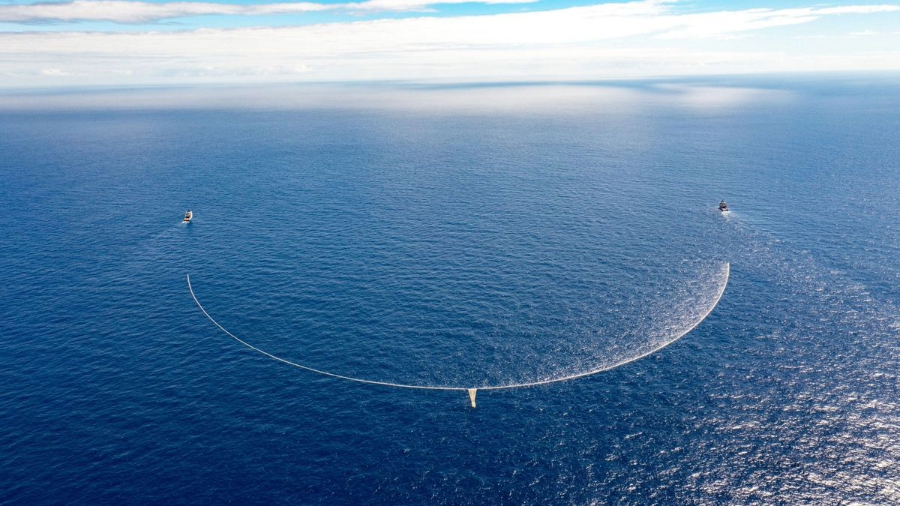The Urgency of Ocean Cleanup: A Global Imperative for a Healthier Planet
The escalating crisis of ocean pollution, predominantly driven by plastic waste and industrial runoff, poses a severe threat to marine life and the delicate balance of our planet. As the urgency to address this issue grows, initiatives for ocean cleanup have taken center stage, propelled by technological innovation, international collaboration, and a collective commitment to safeguarding the health of our oceans.
The Scale of the Challenge
Ocean pollution, primarily fueled by plastic debris, has reached alarming proportions. Millions of tons of plastic enter the oceans annually, forming colossal garbage patches and causing irreparable damage to marine ecosystems. From entangled marine life to microplastics infiltrating the food chain, the consequences of this pollution are far-reaching. The problem is compounded by industrial discharges, oil spills, and untreated sewage, further compromising the quality of oceanic habitats. The need for effective and comprehensive ocean cleanup initiatives has never been more critical.
The Ocean Cleanup: A Pioneering Endeavor
At the forefront of the battle against ocean pollution is The Ocean Cleanup, a pioneering initiative founded by Boyan Slat in 2013. Recognizing the enormity of the problem, Slat and his team have developed innovative technologies to tackle the challenge head-on. The Ocean Cleanup’s flagship project involves deploying passive drifting systems strategically positioned to utilize ocean currents in concentrating and capturing plastic debris. This approach minimizes the need for active energy input, making it a sustainable and scalable solution for cleaning the oceans.
The technological arsenal of The Ocean Cleanup extends beyond passive drifting systems. Autonomous drones equipped with advanced sensors and artificial intelligence are employed to detect and collect plastic waste efficiently. These high-tech solutions represent a paradigm shift in the way we approach ocean cleanup, combining engineering ingenuity with environmental consciousness.
Innovations in Ocean Cleanup Technologies
Beyond The Ocean Cleanup, other visionary technologies are emerging to combat ocean pollution. Robotic systems capable of navigating ocean currents and collecting debris are being developed to enhance cleanup efficiency. These systems leverage machine learning algorithms to adapt and optimize their performance over time, addressing the dynamic challenges posed by the ever-changing ocean environment.
Biodegradable materials and eco-friendly alternatives to traditional plastics are also gaining prominence. Reducing the reliance on non-biodegradable materials at the source is crucial in preventing further pollution. By encouraging the adoption of sustainable materials and practices, we can mitigate the impact of plastic waste on the oceans and marine life.
Challenges on the Horizon
While the strides made in ocean cleanup are promising, significant challenges persist. The vastness of the oceans and the dynamic nature of ocean currents make tracking and capturing debris a complex task. Additionally, the financial and logistical demands of large-scale cleanup projects necessitate international collaboration and commitment. Overcoming these challenges requires a multifaceted approach, combining technological innovation, policy development, and public engagement.
International Collaboration: A Key Pillar
The magnitude of ocean pollution necessitates global cooperation. Governments, non-governmental organizations, and the private sector must unite to develop and implement effective strategies for ocean cleanup. The United Nations’ Sustainable Development Goal 14, dedicated to conserving and sustainably using the oceans, seas, and marine resources, emphasizes the international commitment to addressing marine pollution. Collaborative efforts in research, technology development, and policy initiatives are essential to make meaningful progress in cleaning up our oceans.
Environmental and Economic Implications
Beyond the ecological imperative, ocean cleanup efforts have profound economic and social implications. Healthy oceans support fisheries, tourism, and various industries dependent on marine resources. By mitigating pollution, we can safeguard these economic activities, ensuring their sustainability for future generations. Furthermore, investing in the development of cleanup technologies can stimulate innovation, create job opportunities, and contribute to both environmental and economic resilience.
Conclusion
The call for ocean cleanup resonates as a global imperative, a shared responsibility to protect and preserve one of our planet’s most vital ecosystems. Initiatives like The Ocean Cleanup, propelled by technological innovation and a commitment to sustainability, represent a beacon of hope in the battle against ocean pollution. As we navigate the waves of change, international collaboration, public awareness, and continued investment in research and development will be essential to ensure the success of ocean cleanup efforts. The journey towards cleaner oceans is a challenging one, but it is a journey we must undertake for the well-being of our planet and the generations that will inherit it. The time to act is now, as we chart a course toward a future where our oceans thrive and the beauty of the seas is preserved for all to marvel at and enjoy.
Source:
- https://theoceancleanup.com/oceans/
- https://beyondexclamation.com/the-ocean-cleanup-unveils-plan-to-address-the-main-source-of-ocean-plastic-pollutionrivers/
- https://www.dnv.com/news/the-ocean-cleanup-chooses-dnv-gl-to-verify-the-origin-of-their-ocean-plastic-164046
- https://www.abc.net.au/news/science/2023-03-17/ocean-cleanup-plastic-pollution-great-pacific-garbage-patch/102075810

